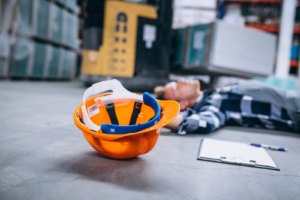
How Smart Clothing Enhances the Safety and Performance of Workers
In the fast-paced world of industrial manufacturing, safety and performance are paramount. As technology continues to advance, so too does the potential to revolutionize the workwear worn by factory workers.
Traditional workwear has served its purpose, but the future lies in smart clothing – garments embedded with cutting-edge sensors and technology designed to enhance safety, comfort, and productivity on the factory floor.
In this article, we’ll explore the exciting possibilities of smart clothing in the manufacturing industry and how it’s shaping the future of workwear.
The Rise of Smart Clothing:
Smart clothing represents a new frontier in wearable technology, blending fashion with functionality to create innovative solutions for industrial settings. These garments are embedded with sensors, microchips, and other electronic components that collect data in real-time, providing valuable insights into worker health, safety, and performance.
From monitoring vital signs to detecting hazardous conditions, smart clothing is revolutionizing the way factory workers interact with their environment.
Enhanced Safety Features:
Safety is a top priority in manufacturing, and smart clothing offers a range of features to improve worker safety. Built-in sensors can detect environmental hazards such as toxic gasses, high temperatures, or excessive noise levels, alerting workers to potential dangers before they escalate.
Additionally, smart clothing can incorporate GPS tracking and fall detection capabilities to ensure prompt assistance in the event of an emergency.
Improved Comfort and Ergonomics:
Factory workers often spend long hours on their feet, performing physically demanding tasks. Smart clothing is designed with **ergonomics** in mind, offering features such as moisture-wicking fabrics, adjustable straps, and lightweight materials to enhance comfort and reduce fatigue.
By prioritizing worker comfort, smart clothing promotes overall well-being and productivity on the factory floor.
Performance Monitoring and Optimization:
Smart clothing enables real-time monitoring of worker performance, providing valuable data to optimize workflows and processes.
Biometric sensors track vital signs such as heart rate and body temperature, allowing supervisors to identify signs of fatigue or overexertion and adjust workloads accordingly. This data-driven approach to performance management can help improve efficiency and prevent injuries in the workplace.
Personalized Training and Feedback:
Another benefit of smart clothing is its ability to provide personalized training and feedback to workers. Embedded sensors can track movements and techniques, offering real-time guidance and feedback to improve performance and reduce the risk of injuries.
This interactive approach to training enhances skill development and ensures that workers are equipped with the knowledge and skills they need to excel in their roles.
Environmental Monitoring and Sustainability:
In addition to enhancing worker safety and performance, smart clothing can also contribute to environmental monitoring and sustainability efforts in manufacturing facilities.
Sensors can detect environmental pollutants, energy consumption levels, and other indicators of environmental impact, enabling companies to identify areas for improvement and implement more sustainable practices.
Conclusion:
As we look to the future of workwear in manufacturing, smart clothing stands out as a game-changer. By leveraging cutting-edge technology and innovative design, smart clothing enhances worker safety, comfort, and performance on the factory floor.
From real-time safety alerts to personalized training and feedback, the potential applications of smart clothing are limitless, offering a glimpse into a safer, more efficient future for industrial manufacturing.
Ready to embrace the future of workwear and enhance safety and performance in your manufacturing facility? Contact VMS Consultants, Project Management Consultant in Gujarat, for expert Engineering Architecture & Project Management Services tailored to your industry needs. Let’s take your workplace to the next level with smart clothing technology.






